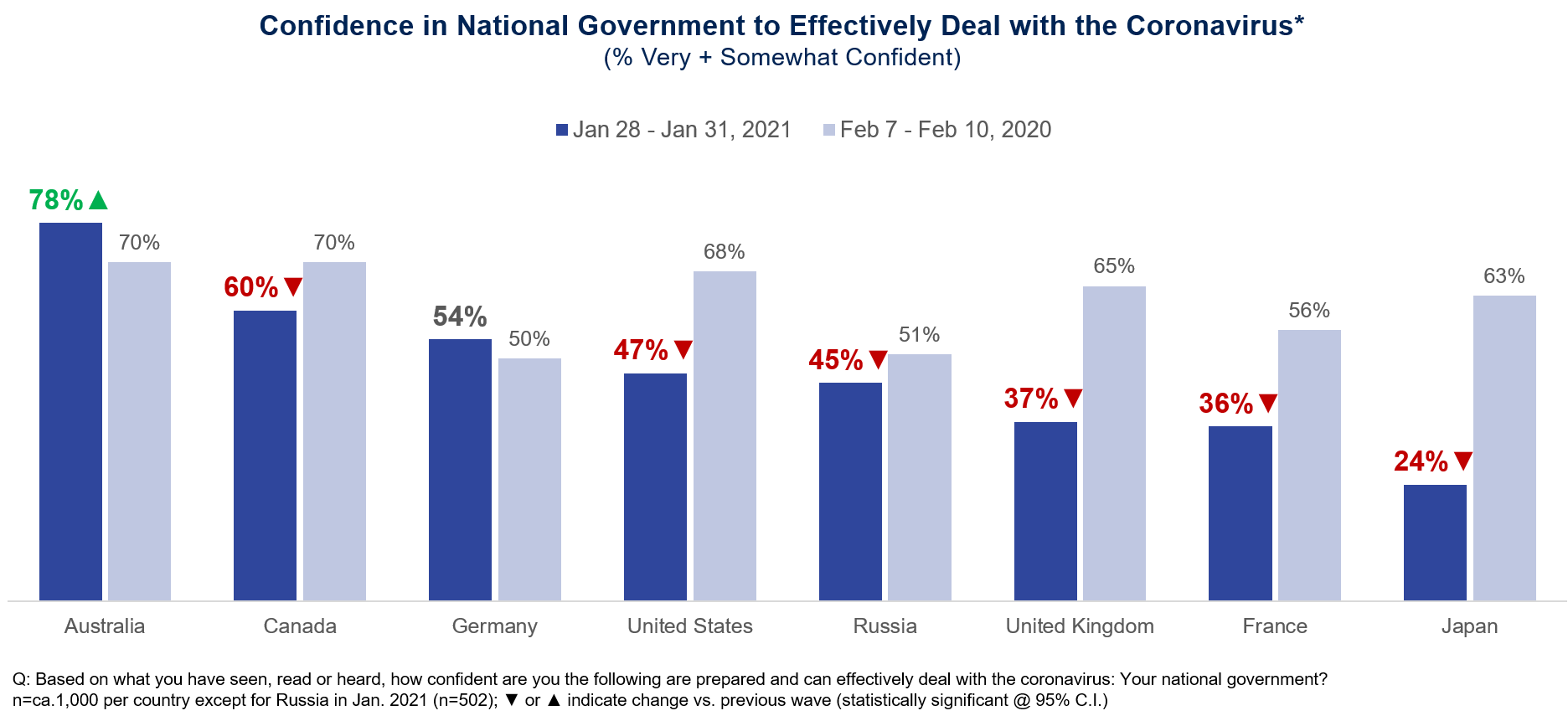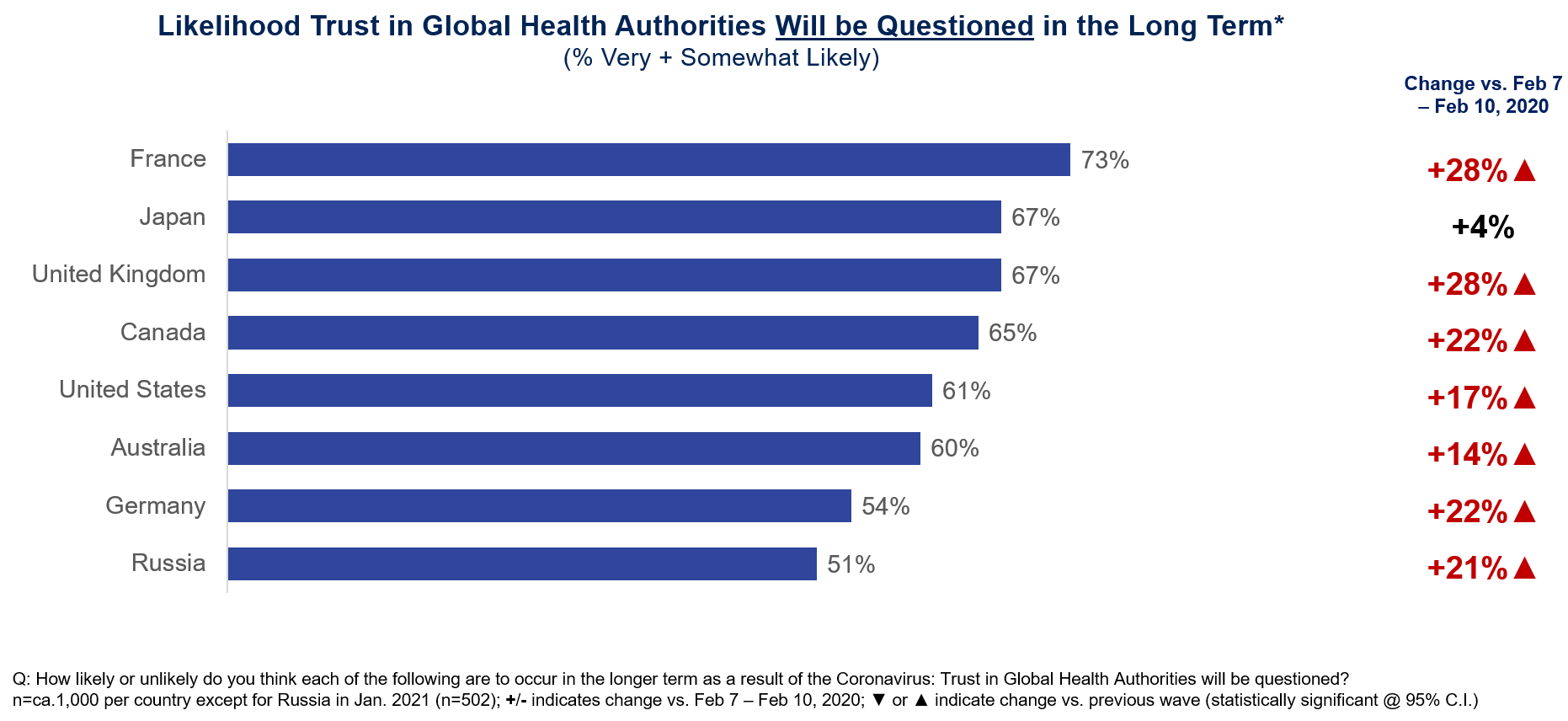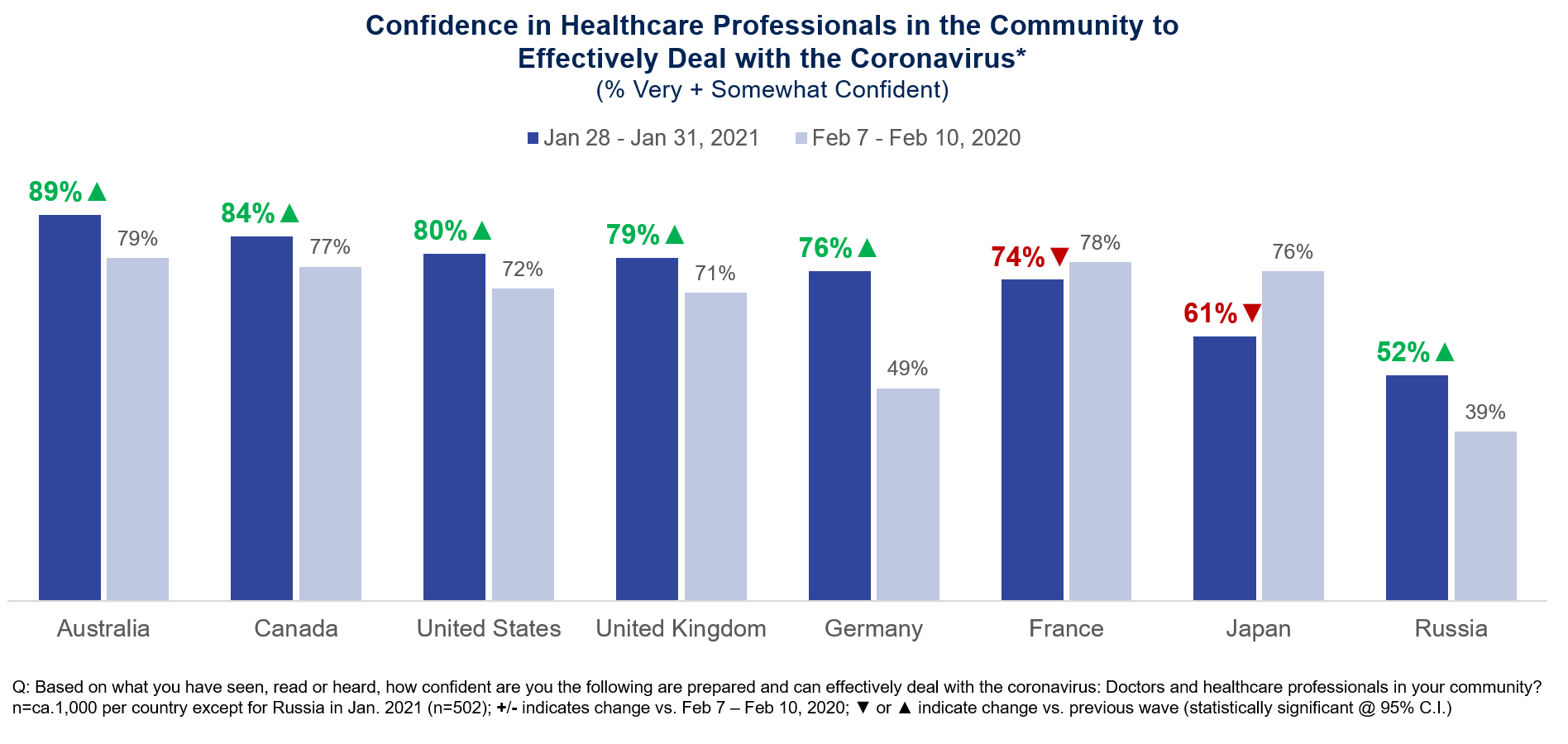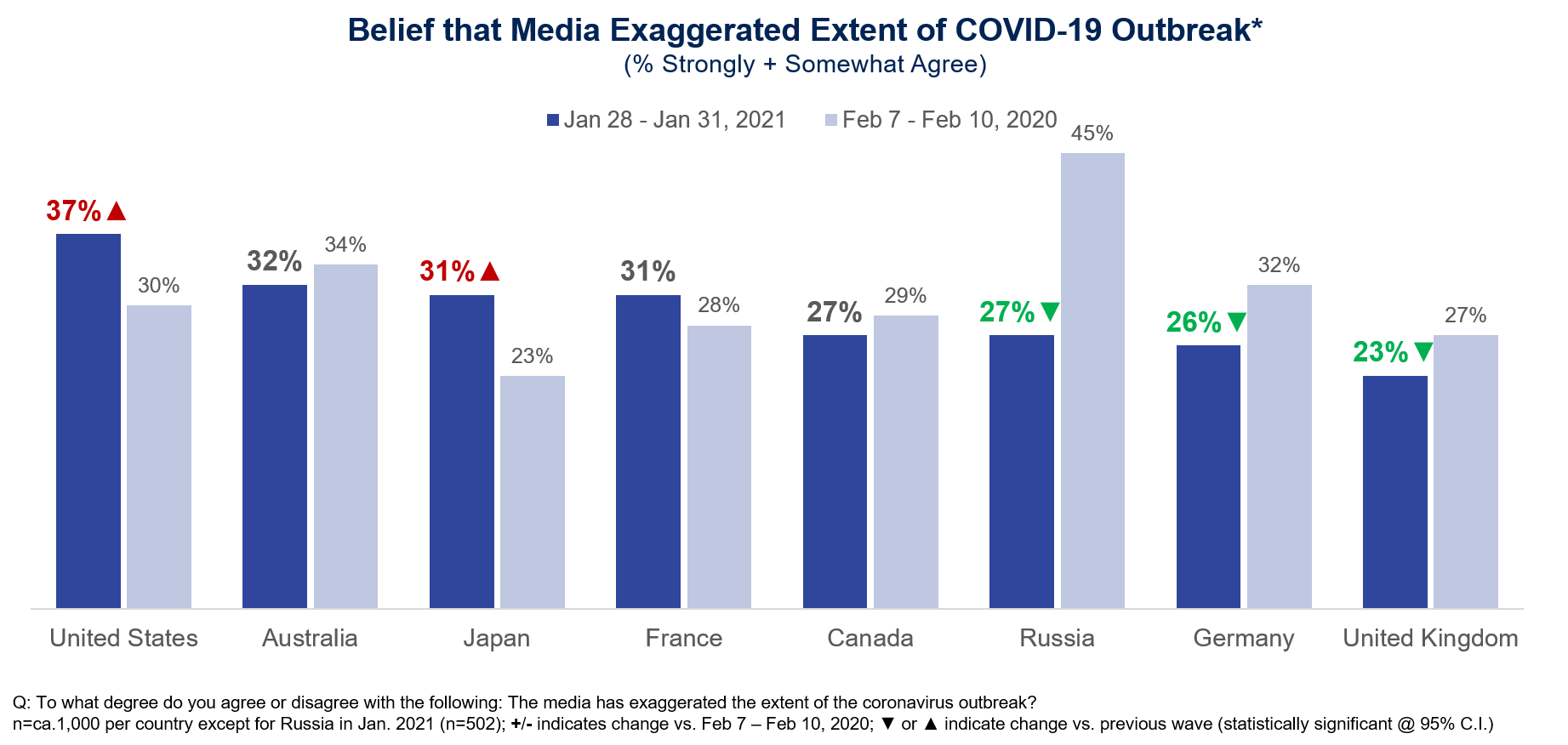COVID-19 one year on: Global public loses confidence in institutions
Washington, DC, March 5, 2021 – Nearly a year after the World Health Organization declared the spread of the novel coronavirus a pandemic, Ipsos has found that people from six of eight major countries are less confident in their government's ability to deal with COVID-19 than last year.
Global health officials and the media also took a hit in this arena. Majorities in Australia, Canada, France, Germany, Japan, Russia, the United Kingdom, and the United States expect that, in the long term, people will question global health authorities. On average, about three in ten adults surveyed across the eight countries believe the media exaggerates the extent of the COVID-19 outbreak, as was the case a year ago.
Doctors and local healthcare workers remain the one group that tends to be more trusted now than at the beginning of the crisis.
National governments did not meet expectations
Over the past year, in most countries studied, confidence in the government’s ability to deal effectively with the coronavirus has decreased. Among the eight countries analyzed, the only exceptions are Australia, where confidence in the government’s COVID-19 response is now higher than it was a year ago (78% very or somewhat confident in January 2021 vs. 70% in February 2020) and Germany, where it is statistically comparable (54% vs. 50%).
• As in Australia and Germany, a majority in Canada (60%) is confident that their government can handle the coronavirus.
• Public opinion on the matter in the United States (47%) and Russia (45%) is divided. Only about one-third of those in the United Kingdom (37%) and France (36%) and one-quarter in Japan (24%) believe their national government can deal with the virus.
• The countries showing the steepest drop in confidence in their national government's COVID-19 response are Japan (minus 39 percentage points), the United Kingdom (-28), the United States (‑21), and France (‑20).

Global health officials lose authority
Most people across the eight countries studied think the pandemic has impacted trust in global health authorities. Over the past year, this opinion has gained in prevalence.
• Majorities in each country, from 73% in France to 51% in Russia, say they are very or somewhat likely to think global public health authorities will be questioned in the long term.
• The expectation that trust in global health authorities will be weakened shows double-digit growth in nearly all countries, including France and the United Kingdom (+28 percentage points, each), Canada and Germany (+22, each), Russia (+21), and to a lesser extent in the United States (+17) and Australia (+14). Japan is the only exception (+4).

One year into COVID-19, doctors and local healthcare professionals gain trust
In all eight countries surveyed, most people are “very” or “somewhat” confident that local healthcare professionals, such as doctors, can deal with COVID-19 in their communities.
• As of now, Australia (89%), Canada (84%), the United States (80%), and the United Kingdom (79%) are the countries whose residents have the most confidence that their local healthcare professionals will be able to manage the novel coronavirus, followed by Germany (76%), France (74%), Japan (61%), and Russia (52%).
• Compared to one year ago, people have grown confident in their local healthcare professionals’ ability to respond to COVID-19 in Germany (+27 percentage points), Russia (+13), Australia (+10), the United States and the United Kingdom (+8, each), and Canada (+7).
• The only countries where confidence in local healthcare professionals’ COVID response is lower now than a year ago are Japan (-15 percentage points) and France (-4).

Belief that the media exaggerates the extent of the COVID-19 outbreak
A sizeable minority of adults surveyed in every country think the media distorted the scope of the COVID-19 outbreak. On average, about three in ten across the eight countries (from 23% in the U.K to 37% in the U.S.) believe the media exaggerates the extent of the COVID-19 outbreak.
• Since February of last year, belief that media coverage of the pandemic is exaggerated has grown in two countries, Japan (+8 percentage points) and the United States (+7);
• It has decreased in Russia (-18), Germany (-6), and the United Kingdom (-4);
• It is statistically unchanged in Canada (-2), Australia (-2), and France (+3).

Read also One year on, most don’t see an end to the pandemic before the end of 2021 – if at all
About the Study
The survey is conducted on Ipsos’ Global Advisor online platform among adults aged 18-74 in Canada and the United States, and 16-74 in Australia, France, Germany, Japan, Russia, and the United Kingdom.
The first wave was conducted between February 7-10, 2020. The 33rd and most recent wave reported in this document was conducted January 28-31, 2021.
For each of Australia, Canada, France, Germany, Japan, the U.K., and the U.S., the samples of each survey wave have a size of 1,000 and can be taken as representative of the country’s general adult population aged 16-74 or, for the US and Canada, aged 18-74.
For Russia, the samples of all survey waves conducted between February and July 2020 size have a size of approximately 1,000; those of waves conducted since August 2020 have a size of approximately 500. The samples in Russia are more urban, more educated, and/or more affluent than the general population and should be viewed as reflecting the views of the more “connected” segment of the population.
The data is weighted so that each country’s sample composition best reflects the demographic profile of the adult population according to the most recent census data. Multi-country averages reflect the average results for all the countries where the survey was conducted. They are not adjusted to the population size of each country and are not intended to suggest a total result.
Where results do not sum up to 100 or the ‘difference’ appears to be +/-1 more/less than the actual, this may be due to rounding, multiple responses, or the exclusion of “don't know” or not stated responses.
The precision of Ipsos online polls is calculated using a credibility interval with a poll of 1,000 accurate to +/- 3.5 percentage points and of 500 accurate to +/- 4.8 percentage points.
For more information on Ipsos’ use of credibility intervals, please visit the Ipsos website (www.ipsos.com).
The publication of these findings abides by local rules and regulations.
